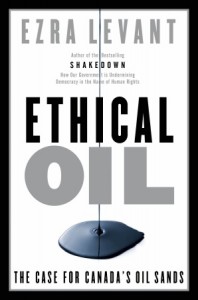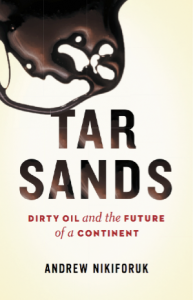George Hoberg and Andrea Rivers
April 9, 2011
Environmental controversies seem to follow regular and predictable patterns of rhetorical conflict, but we are not aware of any resources that characterize or conceptualize the nature of these argumentative strategies. Sociologists and political scientists who do research on interest groups and framing have been interested in more abstract and structural aspects of the phenomenon, and don’t provide useful guidance on either how to deconstruct arguments in an organized way, or how to make arguments in a more persuasive way. Public relations consultants must have guidebooks they use, but we’ve never run across one. If you aware are of any such resource, please let me know.
We’ve identified a list of eleven discrete strategies:
- Label favorably
- Challenge a factual claim
- Establish perspective by placing facts in a broader context that supports your viewpoint
- Draw favourable comparisons
- Appeal to expertise (stronger if your source is ideologically affiliated with the opposing position)
- Focus on your preferred criteria
- Use appealing metaphors
- Question credentials or allege bias
- Identify hypocrisy
- Use sarcasm to ridicule opposing viewpoint
- Ad hominem attacks (criticizing the person, not the argument)
To illustrate their use, we’ve used examples from one of the great framing struggles of our time, the battle over Alberta’s oil sands. While the resources from which to draw examples are enormous, we restrict ourselves to selecting appropriate examples from two debates between two of the most prominent actors in the dispute: journalist and author Andrew Nikiforuk and conservative political activist and author Ezra Levant.
Nikiforuk is a journalist and strong critic of oil sands development from an environmental and economic perspective. He has written many articles on the subject but his best known for his book Tar Sands: Dirty Oil and the Future of a Continent.
Ezra Levant is a conservative political activist and commentator, and the author of the recent book Ethical Oil: The Case for Canada’s Oil Sands. The framing of the oil sands as ethical oil has been adopted by the Harper government in recent months
We’re not trying to reinvent the wheel, so if you are aware of a better characterization, please comment. Please also let us know whether you see any additional strategies or have comments on our categories.
| FRAMING STRATEGY | Nikiforuk | Levant |
| 1. Label favorably | Tar sands, dirty oil | Ethical oil |
| 2. Challenge a factual claim
|
Oil companies are not here for ethical reasons they are here for: “low royalties/taxes, $2 billion subsidies, the water give aways, and industry funded regulators.”Industry funded regional aquatic monitoring program (RAMP) finds oil sands development has no harmful effects on Athabasca River beyond baseline.Yet, peer-reviewed scientific papers showing heavy metal pollutions, bitumen residues in the Athabasca River | “Tar comes from pine trees or coal not oil mixed with clay and sand”“The air quality in downtown Toronto is worse than Fort Mac”“Every industrial project has environmental side effects” |
| 3. Establish perspective by placing facts in a broader context that supports your viewpoint | “A Canadian accounting firm has calculated it will cost $20 billion to separate water from waste and the Alberta Government has set aside $1 billion”“ Oil sands projects burn ¼ of the countries natural gas, create enough toxic mining waste to fill a 10 by 10 meter wide canal across the 49th parallel”The Alberta Government “makes almost as much money w/ gambling and alcohol as bitumen revenues– and gives 1 billion dollar subsides to industry” | “I took the 300,000 people the UN says were killed in Darfur, multiplied by 185 ounces of blood per dead body, divided that into the number of barrels of oil Sudan exported at that time, and every god damn barrel of oil sold from Sudan is a thumb or an eyeball’s worth of oil”“You could talk about 230 ducks, which is sort of like wing night in my neighborhood or you could talk about 300,000 human beings murdered in Darfur”“1,000 ducks or 300, 000 murders, 9/11 terrorists, and a nuclear bomb in Iran, which would you prefer?” |
| 4. Draw favourable comparisons
|
“Norway has saved $400 billion of its oil revenues, Alberta has saved $14 billion”“Proponents of rapid development are as blind to the risks and liabilities as most economists were to the 2008 collapse”“Let’s compare ourselves to countries with comparable institutions” | “Mellissa Blake [Mayor of Fort McMurray] would be stoned to death for adultery if she lived in Saudi Arabia”“Journalists like Nikiforuk would be assassinated in OPEC countries, here journalists get awards”“You could talk about 230 ducks, which is sort of like wing night in my neighborhood or you could talk about 300,000 human beings murdered in Darfur” |
| 5. Appeal to expertise (stronger if your source is ideologically affiliated with the opposing position)
|
Quotes US Military on lessons learned in Iraq and Afghanistan:“Fossil fuels are a security risk, BAU is not a viable option, Oil cannot renew America, but aggressive investments in clean energy can.” | “Oil Sands were 38% more intensive then they are now – we are only getting cleaner!”“There are individual power plants in China emitting more than the oil sands. Underground coal fires in China 30 megatonnes a month- almost as much as oil sands.” |
| 6. Focus on your preferred criteria | The primary purposes of Nikiforuk’s argument is to shift the focus from the economic benefits of oil sands to environmental impacts and how the intensity of economic activity in the oil sands is distorting Canadian economic development. Pace and scale of oil sands development – Canadian politics, economics, and environmental issues | The primary purpose of Levant’s argument is to shift the focus for evaluating oil sands from environmental issues to ethical issues of human rights records in OPEC countries |
| 7. Use appealing metaphors | “We are addicted to a pricey drug, our governments are addicted to oil revenue” | “Canadian ethical oil is the fair trade coffee of the world’s oil” |
| 8. Question credentials or allege bias
|
Levant takes money from the Oil Industry and from the Tories | “[Nikiforuk] takes money from Greenpeace, I want to talk to someone who has no axe to grind” |
| 9. Identify hypocrisy
|
Oil companies operating in Alberta do not have “ethical” records:
|
James Cameron flying up to the Oil Sands, filling his plane with Oil Sands oil“Norway is a model? They are investing in oil sands because their supply is running out, we are the most moral place to invest their money” |
| 10. Use sarcasm to ridicule opposing viewpoint | On Dutch disease:“If oil is so good, than where are all the magical jobs?” | On comparisons: “Its pretty tough to defend the oil sands when you are comparing it to the perfect energy source: dilithium crystals in Star Trek” |
| 11. Ad hominem attacks (criticizing the person, not the argument) | “The US Military is a more reliable source than Ezra Levant.” | Nikiforuk is “evading his moral responsibilities to make a judgment call” |
Debates:
“Canada’s Oiled Future: Ezra Levant and Andrew Nikiforuk debate” 17 September 2010 — CBC Radio Q
“Ezra Levant and Andrew Nikiforuk debate ethics of Alberta’s oil sands” 8 November 2010- Plaza Theatre Calgary, AB
For greater elaboration of their arguments, see
Levant, Ezra. 2010. Ethical Oil: The Case for Canada’s Oil Sands. Toronto: Mclelland & Stewart.
Nikiforuk, Andrew. 2010. Tar Sands: Dirty Oil and the Future of a Continent (revised and updated edition). Vancouver: Greystone/ David Suzuki Foundation.

Well said! Did you see the debate between Levant and Ben West in Vancouver? http://www.youtube.com/user/PlugOutTuneIn#p/u/12/HGd7peKMBX8
Pingback: The Oil Sands Wedge: Could The Next Federal Election Be A Fight Over Dutch Disease? | GreenPolicyProf